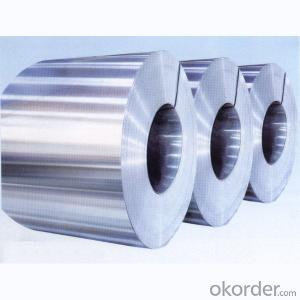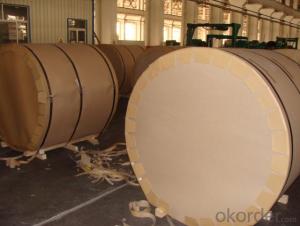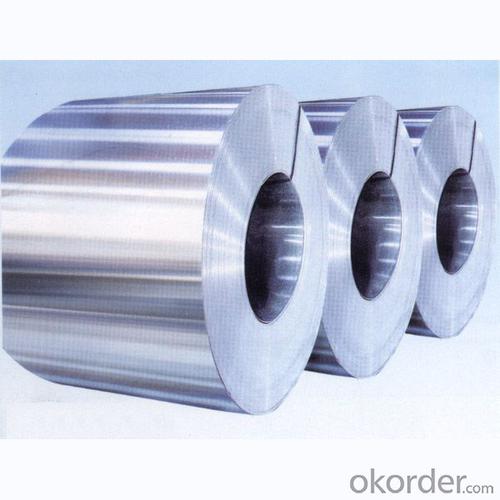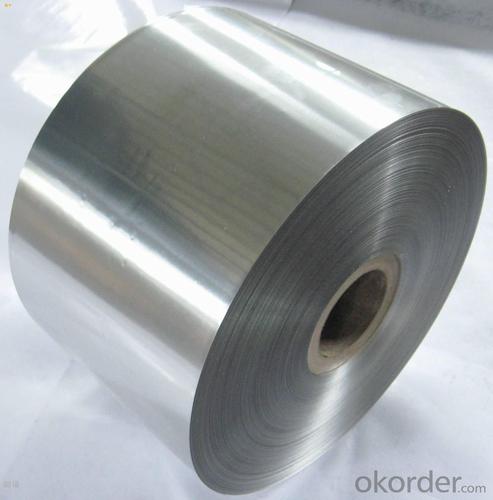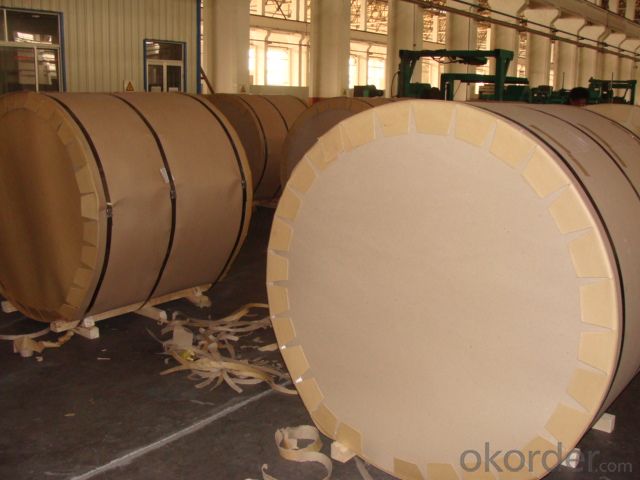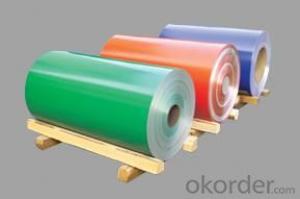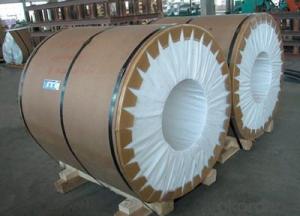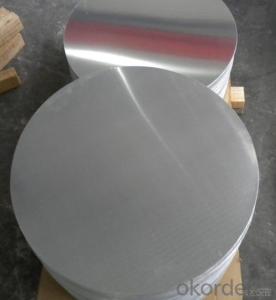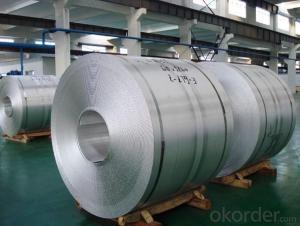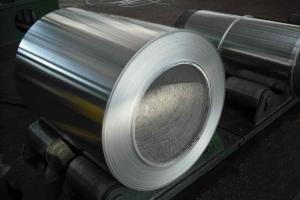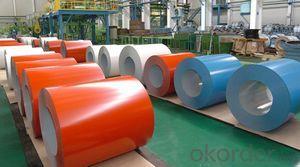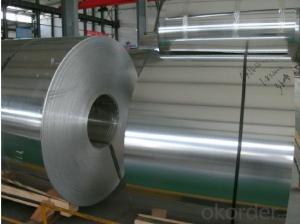Wholesale AA1060 Aluminum Coils for Construction
- Loading Port:
- Shanghai
- Payment Terms:
- TT or LC
- Min Order Qty:
- 5 m.t.
- Supply Capability:
- 10000 m.t./month
OKorder Service Pledge
OKorder Financial Service
You Might Also Like
Specification
1.Structure of AA1060 Aluminum Coils used on Construction Description
AA1060 Aluminum Coils used on Construction has great ductility, heat conductivity, anti-corrosion and moisture resistance properties.
AA1060 Aluminum Coils used on Construction is widely used for PP cap stock, hot rolled thick plate, aluminum curtain wall base plate, the traffic sign ,air-conditioner heat and exchangers.
2.Main Features of AA1060 Aluminum Coils used on Construction
a.Competitive price---We have our own mills and can produce mill finished aluminium coils, so we can control the production cost better.
b.Professional after-sale service---We have more than 15 years exportation experience and you need not worry about the exporation problems.
c.Fast delivery time---We can control the delivery time within 35 days.
3.AA1060 Aluminum Coils used on Construction Images
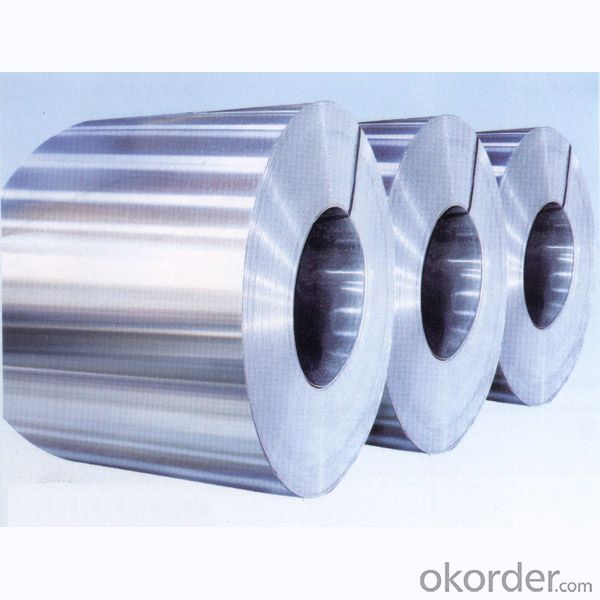
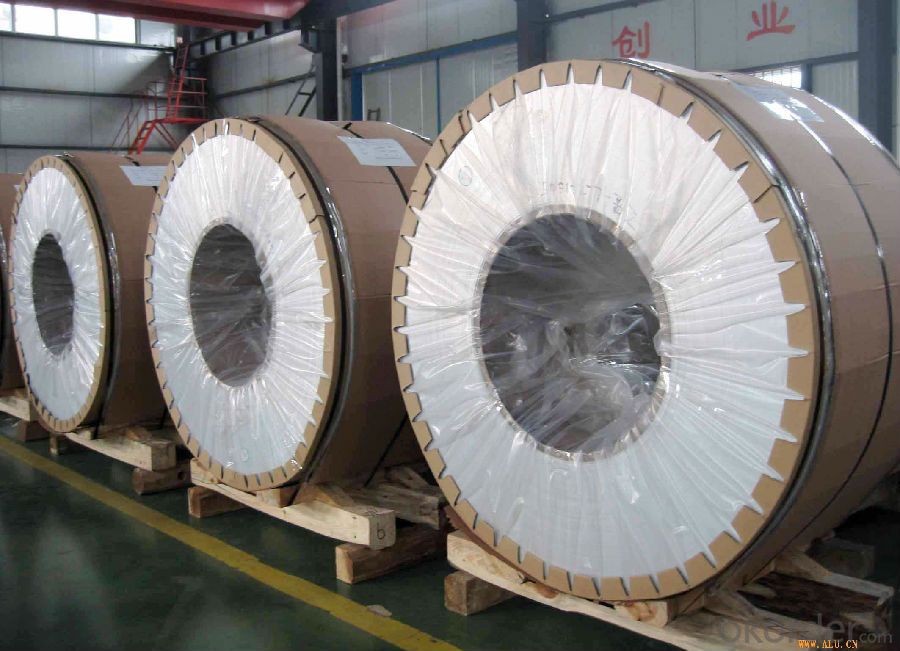
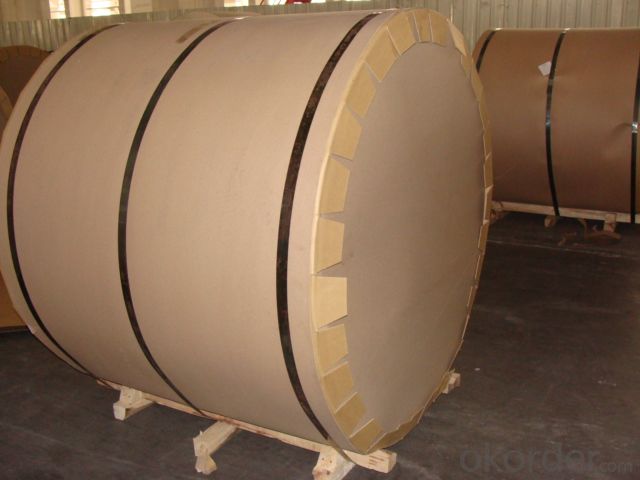
4.AA1060 Aluminum Coils used on Construction Specification
Alloy | A1060 |
Temper | H14, H16, H18, H22, H24, H26, H32, O/F |
Thickness | 0.2mm -- 100mm |
Width | 30mm -- 1700mm |
Standard | GB/T 3880-2006,EN |
5. FAQ of AA1060 Aluminum Coils used on Construction
A.How to guarantee the quality?
Customers are welcome to our mill to visit and check the products. Besides, we can arrange a third party to test AA1060 Aluminum Coils used on Construction.
B.When will you deliver the products?
AA1060 Aluminum Coils used on Construction will be delivered within 35 days after receiving advanced payment or original L/C.
- Q: Is it possible to recycle aluminum coils?
- <p>Yes, aluminum coil can be recycled. Recycling aluminum is a highly efficient and environmentally friendly process. It requires only 5% of the energy needed to produce new aluminum from raw materials. Recycled aluminum coils can be used to manufacture new aluminum products, reducing waste and conserving resources. The recycling process typically involves melting the aluminum, which can then be reshaped into new coils or other forms. This makes aluminum one of the most recycled materials in the world.</p>
- Q: How do aluminum coils contribute to indoor air quality?
- Various ways are affected by the crucial role played by aluminum coils in maintaining and improving indoor air quality. Firstly, aluminum coils find common usage in HVAC systems, which are responsible for heating, ventilation, and air conditioning in buildings. These coils aid in the efficient transfer of heat and cooling, guaranteeing a comfortable indoor environment. By effectively regulating temperature and humidity, aluminum coils help in averting the growth of mold, mildew, and other harmful microorganisms that thrive in damp and warm conditions. As a result, the release of airborne spores and allergens that can have a negative impact on indoor air quality is prevented. Furthermore, aluminum coils exhibit high resistance to corrosion and do not easily accumulate dirt, dust, or debris. This characteristic is of utmost importance, as dirty coils can lead to reduced airflow and inefficient cooling or heating, ultimately resulting in poor air quality. By employing aluminum coils, HVAC systems can sustain optimal performance, ensuring proper air circulation and filtration. This assists in the elimination of pollutants, such as dust, pollen, pet dander, and volatile organic compounds (VOCs) from indoor air, thereby contributing to a healthier and cleaner environment. Another significant factor is that aluminum is a recyclable material, making it an environmentally friendly option. By choosing aluminum coils for HVAC systems, we contribute to waste reduction and the conservation of natural resources. This aligns with sustainable practices and supports endeavors to minimize the environmental impact of our indoor air conditioning systems. In conclusion, aluminum coils make a substantial contribution to indoor air quality by facilitating efficient temperature and humidity control, preventing the growth of harmful microorganisms, enabling proper air circulation, and facilitating effective filtration. Additionally, their durability and recyclability make them an outstanding choice for maintaining a healthy and sustainable indoor environment.
- Q: Can aluminum coils be used in solar energy systems?
- Certainly, solar energy systems can utilize aluminum coils. Aluminum is widely employed in the fabrication of solar panels and solar energy systems owing to its remarkable qualities. Lightweight, durable, and possessing excellent thermal conductivity, aluminum coils are perfect for dispersing heat away from solar cells. Moreover, aluminum's resistance to corrosion is essential for outdoor deployments, where solar panels face diverse weather conditions. By incorporating aluminum coils into solar energy systems, the efficiency and lifespan of the panels are enhanced, thus augmenting the efficacy and sustainability of solar energy generation.
- Q: Are aluminum coils suitable for low-maintenance roofing applications?
- Yes, aluminum coils are suitable for low-maintenance roofing applications. Aluminum is known for its durability, longevity, and resistance to corrosion, making it an ideal material for roofing. Aluminum coils are lightweight yet strong, providing excellent structural integrity to withstand various weather conditions. Additionally, aluminum is a low-maintenance material as it does not rust or require regular painting. This means that homeowners or building managers can save time and money on maintenance tasks such as repainting or replacing rusted parts. Overall, aluminum coils are an excellent choice for low-maintenance roofing applications.
- Q: How do aluminum coils compare to other metal coils like steel or copper?
- When comparing aluminum coils to steel or copper coils, there are several advantages and disadvantages to consider. In terms of weight, aluminum coils are significantly lighter than steel coils. This makes them easier to handle and transport, resulting in potential cost savings for the manufacturing and construction industries. On the other hand, steel coils offer superior strength and durability, making them more suitable for heavy-duty applications where strength is crucial. When it comes to corrosion resistance, aluminum coils have a natural oxide layer that protects them from rust and corrosion. This makes them an excellent choice for outdoor applications or environments with high humidity. While copper coils also have excellent corrosion resistance, steel coils are more susceptible to rust and require additional protective coatings. Thermal conductivity is another important factor to consider. Copper is well-known for its exceptional thermal conductivity, making it highly efficient for applications that require heat transfer, such as HVAC systems. Although aluminum coils have lower thermal conductivity than copper, they are still widely used in various heat transfer applications due to their lightweight nature and cost-effectiveness. Cost is a significant consideration when comparing different metal coils. Generally, aluminum coils are more affordable than copper and steel coils, making them a popular choice in many industries. However, for heavy-duty applications, steel coils often provide the most cost-effective option due to their superior strength and durability. Ultimately, the choice between aluminum, steel, or copper coils depends on the specific requirements of the application. Each metal possesses its own unique properties and advantages, and selecting the appropriate material involves considering factors such as weight, strength, corrosion resistance, thermal conductivity, and cost.
- Q: I have aluminum windows that have to be replaced due to bad thermopanes - there is accumulated grime and humidity in between the panes. Is it possible to buy individual custom-sized replacements or do I have to get all new windows and frames? Any referrals would be helpful.
- If you want to replace them, I would start at a local home improvement store-- they all carry the major brands and there are tax incentives now for replacing windows.
- Q: Some properties of aluminum are summarized in the following list.normal melting point 658°C heat of fusion 3.95 kJ/g normal boiling point 2467°C heat of vaporization 10.52 kJ/g specific heat of the solid 0.902 J/g°C Calculate the quantity of energy required to heat 1.58 mol of aluminum from 33°C to its normal melting point? In KJCalculate the quantity of energy required to melt 1.02 mol of aluminum at 658°C? In KJCalculate the amount of energy required to vaporize 1.02 mol of aluminum at 2467°C? In KJ
- Calculate the quantity of energy required to heat 1.58 mol of aluminum from 33°C to its normal melting point in KJ- 1.58 mol x 26.98 g/mol x 0.902 J/g°C x (658 - 33)°C x 1 kJ/1000 J = 24.03 kJ Calculate the quantity of energy required to melt 1.02 mol of aluminum at 658°C In KJ- 1.02 mol x 26.98 g/mol x 3.95 kJ/g = 108.7 kJ Calculate the amount of energy required to vaporize 1.02 mol of aluminum at 2467°C In KJ- 1.02 mol x 26.98 g/mol x 10.52 kJ/g = 289.5 kJ
- Q: Can aluminum coils be used in the manufacturing of window frames?
- Yes, aluminum coils can be used in the manufacturing of window frames. Aluminum is a lightweight, durable, and corrosion-resistant material, making it a popular choice for window frames. Coils allow for efficient production and customization of window frame shapes and sizes.
- Q: Are there any limitations to using aluminum coils?
- Yes, there are several limitations to using aluminum coils. Firstly, aluminum coils are more expensive compared to other coil materials such as copper. This can be a limiting factor for individuals or businesses with budget constraints. Secondly, aluminum coils have lower thermal conductivity than copper coils. This means that they are less efficient at transferring heat, which can result in decreased performance in some applications. Additionally, aluminum is more susceptible to corrosion and oxidation compared to other materials. This can be a limitation in environments that are highly corrosive, such as coastal areas or industrial settings. Furthermore, aluminum coils are generally not suitable for high-pressure applications. They are more prone to leaks or failures under high pressure, which can limit their use in certain HVAC systems or refrigeration units. Lastly, aluminum coils are not as malleable as copper coils, making them more difficult to work with during installation or repair. This can lead to increased labor costs or potential damage to the coils during handling. Overall, while aluminum coils have their advantages such as being lightweight and environmentally friendly, they also have limitations that need to be considered based on the specific application and requirements.
- Q: Can aluminum coils be used in the manufacturing of aircraft parts?
- Yes, aluminum coils can be used in the manufacturing of aircraft parts. Aluminum is a lightweight and durable material that is widely used in the aerospace industry due to its high strength-to-weight ratio and corrosion resistance. The coils can be formed and machined into various components such as fuselage skins, wings, and structural frames, making them an ideal choice for aircraft manufacturing.
Send your message to us
Wholesale AA1060 Aluminum Coils for Construction
- Loading Port:
- Shanghai
- Payment Terms:
- TT or LC
- Min Order Qty:
- 5 m.t.
- Supply Capability:
- 10000 m.t./month
OKorder Service Pledge
OKorder Financial Service
Similar products
Hot products
Hot Searches
Related keywords
